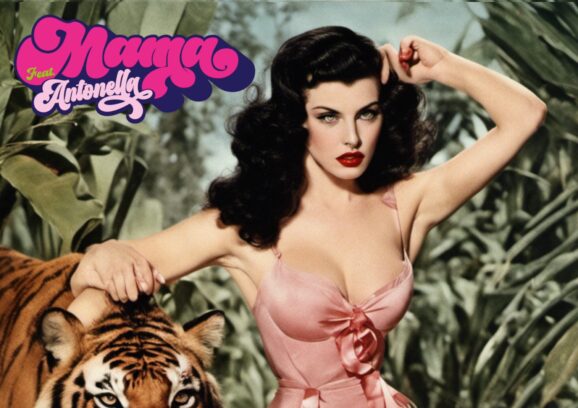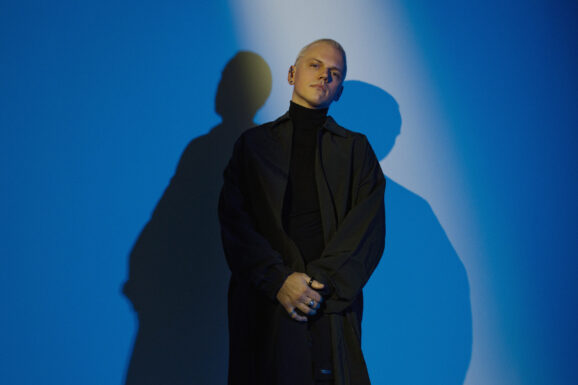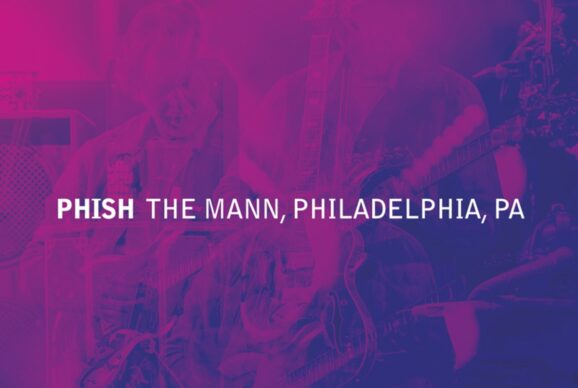The Grateful Dead’s live album Reckoning (released 4/1/81) is a prime example of the new-found inspiration the band was experiencing with the enlistment of Brent Mydland into its ranks. Recorded in the fall of 1980, some eighteen months after the keyboardist/vocalist/songwriter joined, this acoustic collection and its electric companion piece Dead Set was as close as the iconic band came to celebrating its fifteenth anniversary.
Contained in expanded form as part of the ornately-designed box set Beyond Description: Grateful Dead 1973-1989, a two-CD set illustrates how the Grateful Dead benefited from their reconfigured camaraderie. The multi-night runs staged in California at the Warfield Theater in San Francisco and at Radio City Music Hall in New York in 1980 capture their own rediscovered confidence and elevated comfort level, a further measure of which allowed them to collate two separate sets of double vinyl LPs released the following year.
Reckoning compiles culls from the opening sets for those shows. An understated but hardly less amazing amalgam of originals and roots of their folk/country/bluegrass originals, this compendium may be the sleeper of that second massive box set. On self-penned tunes that naturally lent themselves to the folk-oriented treatment (“Dire Wolf”), staples of the band’s electric configuration that translated fluently into superb acoustic jamming vehicles (“Bird Song”), some never-to-be-repeated rarities (“Rosalie McFall”), and a bunch of well-chosen covers (“The Race Is On”), the band is hearkening directly to their similarly-styled work of ten years prior, namely Workingman’s Dead and American Beauty.
The intricate mix of acoustic guitars, enriched by the varied percussion supplied by Bill Kreutzmann and Mickey Hart, constitutes a veritable mirror image of the group’s more prevalent high-volume approach. The arrangements gain further distinction through the astute accents from Mydland; his harpsichord on “Dark Hollow,” for instance, is a startling yet appropriate change of pace from the acoustic piano that underscores the otherwise traditional feel of these sets and, as with the exquisite sound of that same instrument on “China Doll,” supplies further evidence of the unconventional spirit the man brought to the Grateful Dead throughout his roughly ten-year tenure with them.
Enlivened accordingly, the rest of the band plays with a combination of savvy economy and exploratory zeal. In fact, a couple of left-field inclusions, in the form of instrumentals “Heaven Help the Fool,” the title song of Bob Weir’s second solo album plus “Sage & Spirit,” off 1975’s Blues For Allah, add a jazzy, ethereal quality that contrasts with the barroom ambiance elsewhere. Meanwhile, in its merger of dichotomies, this version of “Cassidy” is quintessential Dead: lyrics allusive and vivid top an arrangement that is sparkling yet spacious. In addition, the vocal harmonies, though used sparingly, bespeak practice in group singing this iconic band did not evince as the previous decade wound down: here again, Mydland is indispensable in his contributions (as he proved even more extensively during the course of his stint with the group).
As included in the aforementioned box, this second CD is of greater duration than the content as originally contained on two pieces of vinyl. And despite the fact it does include some repeats from its companion piece, ”Deep Elem Blues” to name one, it also features cuts exclusive to its track-listing: “Iko Iko,” for instance, would subsequently become a fairly regular selection in the band’s latter-day repertoire. Opening the nearly eighty-minutes playing time, this studio rehearsal take of “To Lay Me Down” offers more evidence of the preparation the band expended to make sure choice originals of their own like “Ripple” sound of a piece with vintage fare such as “Jack-A-Roe.”
Recorded by Betty Cantor-Jackson, mixed by Dan Healy, mastered by Joe Gastwirt, Reckoning’s pristine clarity and definition of sound correlate to the extra nuance of its understated setting. In its lengthened form, this package actually offers as much additional insight as it does music, reminding not only of the musical foundation at the heart of the Grateful Dead’s eclectics but also the open-mindedness the ensemble brought to sculpting its own style even as it (along with personnel) shifted dramatically over the years.









